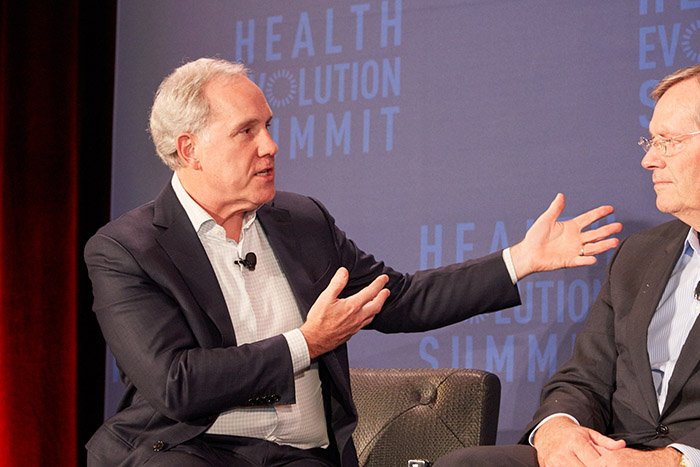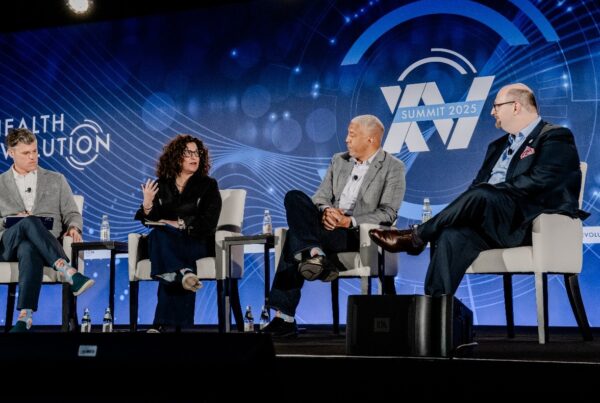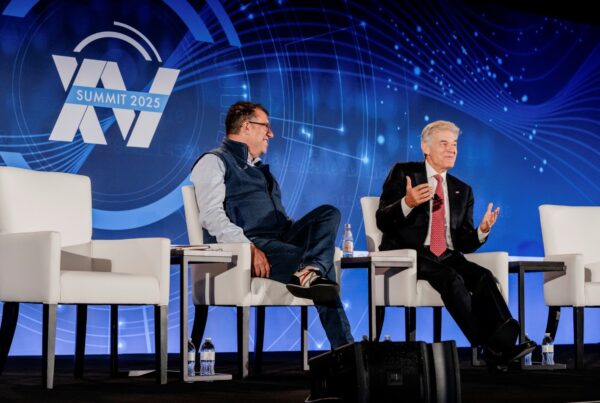As we enter Super Tuesday, health care costs and coverage are yet again the top quadrennial topics of fierce election debate. Decades of polling has shown that there is broad consensus among Americans for lower costs and better coverage. These goals have endured over time and across Republicans and Democrats, conservatives and liberals, old and young. Yet, political battles about cost and coverage unfold as if Americans were deeply divided, rather than united in their aspirations.
It is in this context that calls for Medicare for All strike me as the height (or low point) of political gamesmanship.
It is one thing to call for universal coverage, which is an aspiration that we should all seek. It is yet another to call for knocking down the public-private partnership that has been the pillar of our health care system, only to rebuild it at great expense from the ground up. It makes clear that our political leaders don’t really understand Medicare — and this leaves health policy in a perilous position.
Medicare’s complex web of private payers and government agencies
Traditional Fee-for-Service Medicare is viewed by many as the bedrock of government health programs, the one that Medicare for All advocates want to build upon. But most don’t know that Medicare has been run for decades by private companies called MACs (Medicare Administrative Contractors). Day in and day out, MACs provide coverage for Medicare beneficiaries, answer their phone calls, connect them to treatment, advocate their access to care, and pay their claims. In pretty much every way, they are Medicare.
MACs are nearly all owned by health insurers (Novitas is owned by BCBS of Florida; Palmetto and CGS are owned by Celerian Group which is owned by BCBS SC; NGS is owned by Anthem; Noridian is owned by BCBS ND) who compete aggressively for Medicare business. This competition has been essential for years to keeping costs under control and maintaining high levels of consumer service.
To top it off, a separate set of private companies compete for government contracts to police and audit the MACs. This is all run by a very small number of government employees — far fewer people than anyone would believe is needed for the largest government program in the world.
Medicare Advantage, the President George W. Bush era policy that allows Medicare beneficiaries to opt out of traditional Medicare and purchase private insurance, is one of the most successful and popular health programs in America. It now covers 22 million seniors, more than a third of Medicare beneficiaries. It goes further than traditional Medicare in that it operates entirely by intense competition among major American health plans (the big 5 MA players in 2019 were United Healthcare, Anthem plus other Blues, Aetna, Kaiser and Cigna), including some that are also MACs. They compete for multi-billion-dollar contracts based on their ability to recruit beneficiaries, manage cost, benefits, quality and satisfaction. Like traditional Medicare, MA health plans are monitored by other private companies which themselves compete for Medicare contracts based on their ability to root out fraud and noncompliance. Again, there is the thinnest veneer of permanent government staff supervising Medicare Advantage.
And on it goes. TriCare, the health insurance coverage for our military and their dependents, is operated by HealthNet and Humana. Obamacare? More than half of all the policies written are offered by four well-established American insurers: Cigna, Centene, Anthem and Molina. Medicaid in forty states is run by private managed contractors who compete intensively to cover more than 66 percent of Medicaid beneficiaries. Who did state governments trust last year to support the Medicaid offerings for their most vulnerable people? United Healthcare, Centene, Anthem, Molina and Aetna are the top five. Don’t forget the hugely popular and successful Medicare Part D, the Medicare drug benefit, which is entirely run by private companies under brutal competition for cost and formulary. The top players here are UnitedHealthcare, Humana, CVS Caremark, Cigna and Aetna.
There is a pattern here that advocates for a government take-over of health care don’t see or won’t admit. Over many years, the American model for health care has settled onto a complex set of public-private partnerships, unique among developed nations. This has resulted from a legitimate disagreement between liberals and conservatives over what role government should play in realizing America’s health care goals. Liberals believe that government can best allocate resources, while conservatives believe that markets can. The endless series of compromises has created a dizzying tapestry of public-private collaboration that is the foundation of U.S. health care policy. This partnership is ultimately overseen by fewer than 10,000 tireless and committed people at CMS, state governments, the military, Indian Health Service and many other government agencies. But the vast majority of what would be known as government health insurance is run by commercial companies that employ more than 700,000 people.
That is why Medicare for All is a myth.
What would really happen under Medicare for All?
Imagine that private health insurance offerings are eliminated and the US population is moved to Medicare. The health plans that lose commercial beneficiaries are the same ones that will support them as MACs. The laid-off private sector employees would become government employees, supporting the same book of business as before. Would this change suddenly create a utopian future? Certainly not. Would it save money? Some but very little in a $3 trillion industry. Imagine also that Medicare Advantage is shut down and people are forced onto traditional Medicare. Same thing. Likewise for TriCare, Obamacare and Part D. Medicare for All advocates need to understand that simply rearranging government contracts will do nothing to fix the real faults that underly health policy. What it will do is disrupt the delicate public private balance that has underpinned American health care for decades.
Let’s imagine that there was truly a revolutionary government take-over of health care. A real nationalization, where commercial health insurers were banned and the government directly operates all health insurance programs. What that creates is the US version of the UK’s NHS. Although for years the NHS was vaunted as the crown jewel of England, it is now in free fall after years of underinvestment. Wait times for procedures, specialist visits, hospitalizations are rapidly rising. Much worse, life expectancy is falling for reasons directly attributable to poor health care, resulting in a British male expecting to live a year less in 2019 than in 2015. The NHS is in crisis, and this didn’t happen because of a private sector run amok. It happened because government had total control over the program, and it did what governments tend to do when not held to account — it stole from the future to pay for today. The US under a government take-over of health care could similarly skimp and cut and underinvest until Americans faced failing health.
Advocates of Medicare for All should explain why disruption of American public-private health collaboration would turn out differently than Britain. No one is saying that our current approach is ideal or even desirable, but there are a multitude of ways to make it worse. Fifty years of incremental and complex health partnerships between governments and the private sector can’t be swept away without being replaced by something that is certain to work better. Policy makers and politicians need to articulate what that replacement looks like and why it truly addresses the underlying causes of health care problems in the US.
Regardless of the merit or feasibility of Medicare for All, the very fact that Presidential candidates openly call for government takeover of health insurance evidences that the private sector has work to do.
CEOs of US health insurance companies need to be much stronger in advocating for and explaining what they really do and why an effective public-private partnership is essential for the future of our health.
If Americans understood the role that private health insurance actually plays, they wouldn’t tolerate takeover dialogue. Instead, they would see that the holes in coverage and other problems we face can’t be laid purely at the feet of our private companies. They would call on policy makers of both parties to find new compromises, as they have in the past, that continue to strengthen our tradition of public-private partnership in order to realize America’s health care goals.
Related articles:
CEOs, top executives share the best advice they ever received
CEOs need to lead on interoperability
CEOs talk top priorities for the next 3-5 years
Express Scripts: A pivot point for digital health innovation
Why CEOs should support price transparency











